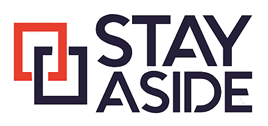We all know, interviews can be nerve-wracking. Many people, understandably, can feel anxious, or even struggle, when answering common interview questions. That’s normal! But there is good news: the best way to alleviate this pressure and set yourself up for success is with proper preparation. With practice and planning, you can confidently go into your next interview knowing you can effectively answer common interview questions, rather than just winging it.
While there is an infinite number of interview questions you may be asked, this article focuses on 3 fairly common ones to get you started:
- “Tell me about your work ethic?”
- “What’s been your biggest professional success?”
- “How do you deal with conflict in the workplace?”
General tips for answering interview questions
Before answering interview questions, it is important to first understand what makes a great interview answer. The best answers to interview questions are phrased as a story where you are a hero. You can do this by using the STARF and story toolbox methods.
The STARF method (also known as the STAR method), is a technique for answering interview questions. It allows the interviewee a straightforward approach for answering questions, typically behavioural and situational, in a story-like format. In it, you describe the situation, your tasks, your actions, the results, and the follow-up. Read the following article for more information on using the STARF method.
A story toolbox is an approach where you ‘collect’ stories from your past work experiences that can be ‘pulled’ out during an interview. The aim of this approach is to remember your key professional moments, situations, and accomplishments that (1) can be framed in a story format to answer a variety of interview questions, and (2) are a chance for you to (professionally) brag!
Question #1: Tell me about your work ethic
The root of this question is trying to determine how you work and what you value in your work. This can include your approach to self-discipline, teamwork, motivation, success, and planning, to name a few. When answering this question, do the following:
- Begin by stating how you define a good work ethic
- Explain what you value about your work ethic
- Tell a STARF story which illustrates a time when you aligned your work responsibilities or achievements with your work ethic
- Relate your answer back to the job posting, such as how your work ethic will be invaluable in this role
Question #2: What’s been your biggest professional success?
This question is useful in an interview because it also shows the interviewer what you value as being ‘successful’. Maybe success to you is leading a team through a challenging transition, or exceeding a sales quota, or building a connection with an important client or stakeholder. When answering this question, do the following:
- Describe and acknowledge the different ways you define professional success
- Expand on what areas of your past success you are most proud of
- Tell a STARF story which illustrates a time when you succeeded
- Relate your answer back to the job posting, such as how this type of success will be invaluable in this role
Question #3: How do you deal with conflict in the workplace
One of the most common, and revealing, interview questions, aims to discover how you approach conflict management. Dealing with conflict is an essential aspect of almost every role, in every industry. Conflict can come in different forms (e.g., interpersonal, a discrepancy, or making an error). When answering this question, do the following:
- Describe and acknowledge different types of conflict in the workplace
- Tell a STARF story which illustrates a time when you had to manage a conflict*
- If applicable, include comments on empathizing with the other party in the conflict
- Relate your answer back to the job posting, such as how this type of conflict management will be invaluable in this role
*Choose a story where you dealt with conflict successfully. However, to show growth, you can also add a brief moment at the beginning of your answer to describe how you have unsuccessfully approached conflict in the past, learnt from that experience, and now handle conflict exceedingly well. Humility and growth are good traits that many interviewers will be looking for.
Final thoughts
Interview questions come in all shapes and sizes, and it is impossible to prepare for all of them. Hopefully, now you feel a little more comfortable going into your next interview. Deep breath, you got this!
And if you are looking for more help with preparing for your next interview, be sure to download our free Ultimate Guide to Acing the Interview and Getting Hired.

